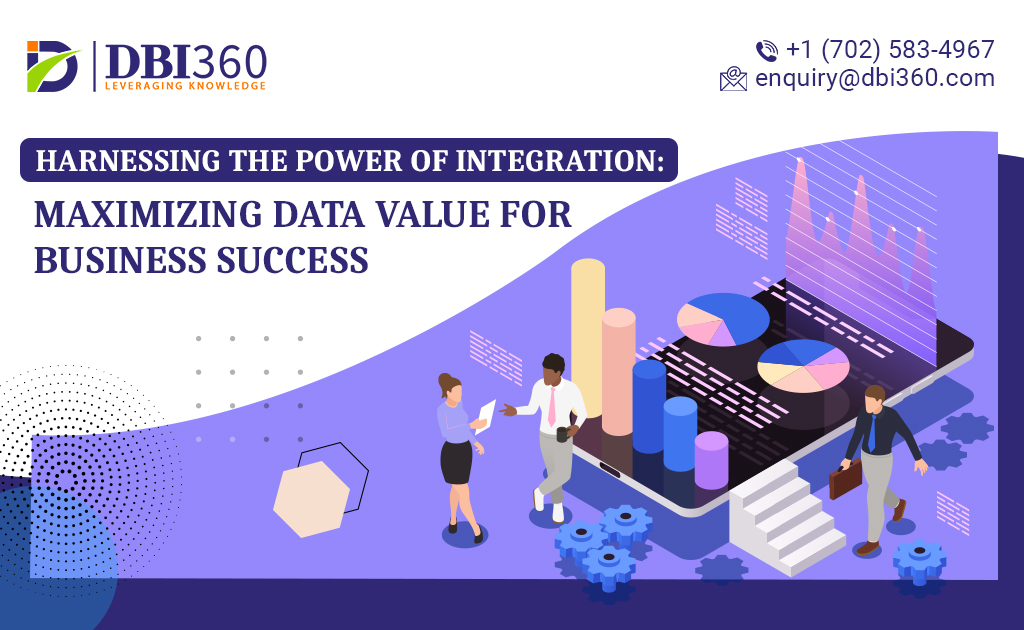Introduction
In today’s data-driven world, businesses increasingly recognize the importance of data as a valuable asset. However, the true value of data lies not only in its collection but also in its utilization. To unlock the full potential of data, businesses must embrace integrated systems that enable seamless data flow, integration, and analysis. This blog explores maximizing the value of data through integrated systems. We will explore the benefits, strategies, and real-world examples of how businesses can leverage integrated systems to drive efficiency, informed decision-making and ultimately achieve business success.
Benefits of Integrated Systems
1. Improved Data Accessibility:
-
Integrated systems facilitate easy access to data across different departments, enabling employees to make informed decisions based on accurate and up-to-date information.
-
Data from various sources is consolidated and presented in a unified format, eliminating the need for manual data gathering and reconciliation.
2. Enhanced Data Integration:
-
Integrated systems allow for seamless data integration, breaking down data silos and enabling a holistic view of the organization’s data.
-
By eliminating data inconsistencies and redundancies, businesses can ensure data accuracy and improve the quality of insights derived from data analysis.
3. Streamlined Processes:
-
Integrated systems automate manual processes, reducing human error and saving time and resources.
-
Workflow automation and standardized data management processes increase efficiency and productivity across the organization.
4. Informed Decision-Making:
-
Integrated systems provide timely access to relevant data, empowering decision-makers with the information they need to make data-driven decisions.
-
Real-time analytics and reporting capabilities enable proactive decision-making and help businesses stay ahead in a fast-paced market.
Strategies for Maximizing Data Value with Integrated Systems
1. Define Data Objectives:
-
Clearly define the business goals and objectives that data integration aims to achieve.
-
Identify key performance indicators (KPIs) and metrics that will be used to measure the success of data integration efforts.
2. Data Governance Framework:
-
Establish a robust data governance framework to ensure data quality, security, and compliance.
-
Define data ownership, access controls, and privacy guidelines to maintain data integrity and protect sensitive information.
3. Seamless Integration:
-
Choose integrated systems compatible with existing infrastructure and seamlessly integrate with various data sources.
-
Ensure smooth data flow between systems by implementing effective data integration techniques like APIs and data connectors.
4. Data Quality Assurance:
-
Implement data quality controls and validation processes to ensure data accuracy, completeness, consistency, and validity.
-
Regularly monitor and cleanse data to maintain its quality and integrity.
Real-World Examples of Maximizing Data Value with Integrated Systems
1. E-commerce Industry:
-
Integrated systems enable e-commerce businesses to consolidate data from various channels, such as online stores, marketplaces, and social media platforms.
-
This unified view of customer data helps businesses personalize marketing campaigns, optimize inventory management, and improve customer experience.
2. Manufacturing Sector:
-
Integrated systems streamline data exchange between production, supply chain, and customer relationship management (CRM) systems.
-
This integration lets manufacturers gain real-time insights into production efficiency, inventory levels, and customer demand, leading to better production planning and resource allocation.
Conclusion
Integrated systems play a crucial role in maximizing the value of data for businesses. By breaking down data silos, streamlining processes, and enabling informed decision-making, integrated systems empower businesses to leverage the full potential of their data. By embracing integrated systems, businesses can achieve greater efficiency and improved decision-making, ultimately driving their success in today’s data-driven landscape. Start unlocking the potential of your data today by embracing integrated systems and maximizing their value for your organization’s growth and prosperity.

